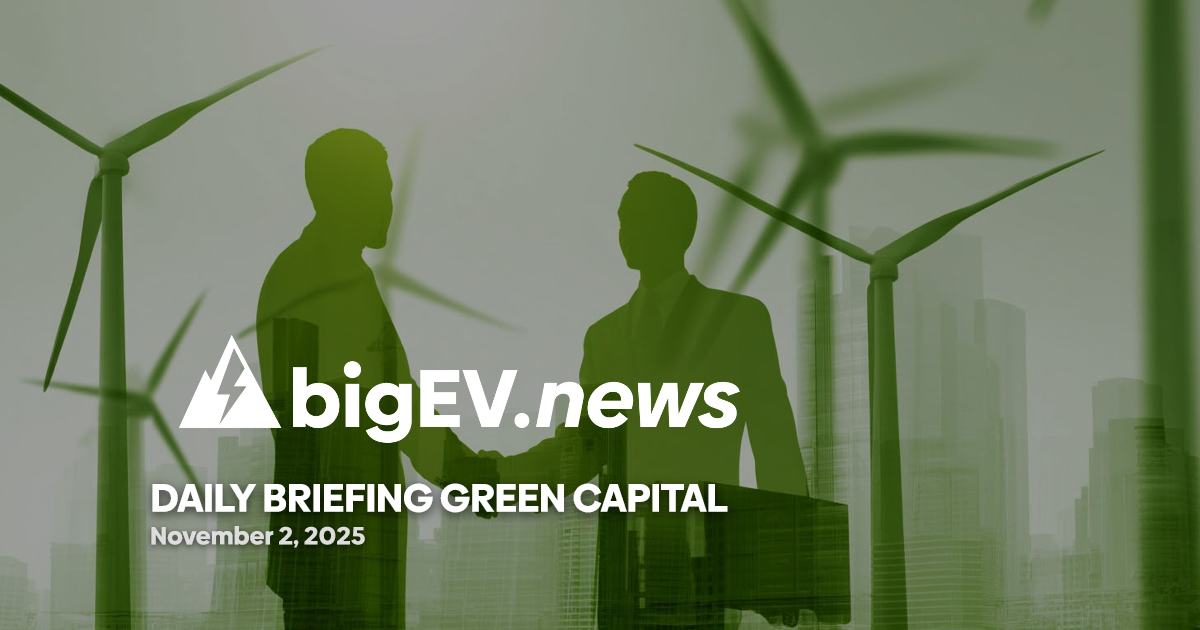Global ESG capital flows and green bonds drive transformative clean technology investments, regulatory shifts, and strategic alliances in the race for climate-positive growth.
At a glance – The past 24 hours saw a marked acceleration in ESG investing and green capital flows, with major financial institutions and corporations announcing new commitments to climate-positive projects. Notably, the Toronto Climate Week 2025 commenced today, gathering over 2,000 industry leaders, investors, and policymakers to discuss the latest trends in sustainable finance, green bonds, and the clean technology transition. The event’s opening keynote by Canada’s Minister of Environment, Steven Guilbeault, highlighted a record $14.2 billion in new green bond issuances in Q3, with a focus on renewable energy and low-carbon infrastructure. The conference agenda includes panels on ESG data transparency, climate risk modeling, and the integration of AI in sustainable investment strategies, reflecting the sector’s rapid evolution and the growing demand for robust ESG metrics.
Technology advance – Amazon announced a landmark agreement to source 1.2 GW of solar energy for its U.S. data centers, partnering with NextEra Energy Resources in a deal signed October 1, 2025. This initiative will power over 80% of Amazon’s U.S. cloud operations with renewable energy by 2027, supporting the company’s Climate Pledge commitment to reach net zero carbon emissions by 2040. The solar installations will be located across Texas, Virginia, and Ohio, and are expected to reduce annual CO2 emissions by 2.1 million metric tons. Amazon’s Chief Sustainability Officer, Kara Hurst, emphasized that this project sets a new benchmark for corporate clean energy procurement, and NextEra’s CEO, John Ketchum, noted that the partnership will accelerate grid decarbonization and spur local job creation in solar manufacturing and installation.
Partnerships – In a significant cross-border collaboration, BNP Paribas and the African Development Bank launched the $500 million Green Africa Infrastructure Fund, unveiled at the Paris Sustainable Finance Summit on September 30, 2025. The fund targets investments in climate-resilient transportation networks, water management systems, and renewable energy projects across Kenya, Nigeria, and South Africa. BNP Paribas’ Head of Sustainable Finance, Laurence Pessez, stated that the initiative will leverage blended finance models to mobilize private capital alongside public sector funding, aiming to deliver measurable ESG outcomes and support the UN Sustainable Development Goals. The African Development Bank’s President, Dr. Akinwumi Adesina, highlighted the fund’s role in addressing Africa’s $100 billion annual infrastructure gap while promoting inclusive, low-carbon growth.
Acquisitions/expansions – Siemens Mobility announced the $1.1 billion acquisition of Swedish battery manufacturer Northvolt’s e-mobility division, finalized on September 30, 2025. This strategic move expands Siemens’ portfolio of electric vehicle (EV) charging solutions and battery storage systems, positioning the company as a leader in integrated clean transportation infrastructure. Siemens Mobility CEO, Michael Peter, confirmed that the acquisition will enable the rollout of high-capacity EV charging corridors across Germany, France, and the Netherlands by 2026, supporting the European Union’s Fit for 55 climate targets. Northvolt’s CTO, Emma Nehrenheim, noted that the deal will accelerate innovation in solid-state battery technology and facilitate the scaling of sustainable supply chains for critical minerals.
Regulatory/policy – The European Union Council approved a major simplification of the Carbon Border Adjustment Mechanism (CBAM) on September 30, 2025, streamlining compliance procedures for importers of steel, cement, and aluminum. The revised CBAM framework reduces reporting burdens and introduces digital tracking for embedded carbon emissions, enhancing transparency and enforcement. EU Environment Commissioner Virginijus Sinkevičius stated that the changes will strengthen the EU’s ability to prevent carbon leakage and incentivize global climate action, while industry groups welcomed the move as a step toward harmonizing international carbon pricing standards. The new rules are set to take effect in January 2026, with phased implementation across member states.
Finance/business – BlackRock reported a 17% year-over-year increase in its sustainable assets under management, reaching $1.3 trillion as of September 30, 2025. The firm’s Q3 earnings call highlighted robust inflows into ESG-themed ETFs and green bond funds, driven by institutional demand for climate-positive investments. CEO Larry Fink cited the launch of the BlackRock Global Clean Energy Fund, which attracted $2.8 billion in new capital in its first month, as evidence of the growing appetite for sustainable finance products. The fund’s portfolio includes stakes in offshore wind developers, energy storage innovators, and low-carbon transportation companies across North America, Europe, and Asia. BlackRock’s Chief Investment Officer for Sustainable Investing, Amy O’Brien, emphasized the importance of rigorous ESG screening and active stewardship in driving long-term value and mitigating climate risk.
Sources: esgnews, esgtoday, BNP Paribas press release, Siemens Mobility press release, EU Council official bulletin, BlackRock Q3 earnings call









